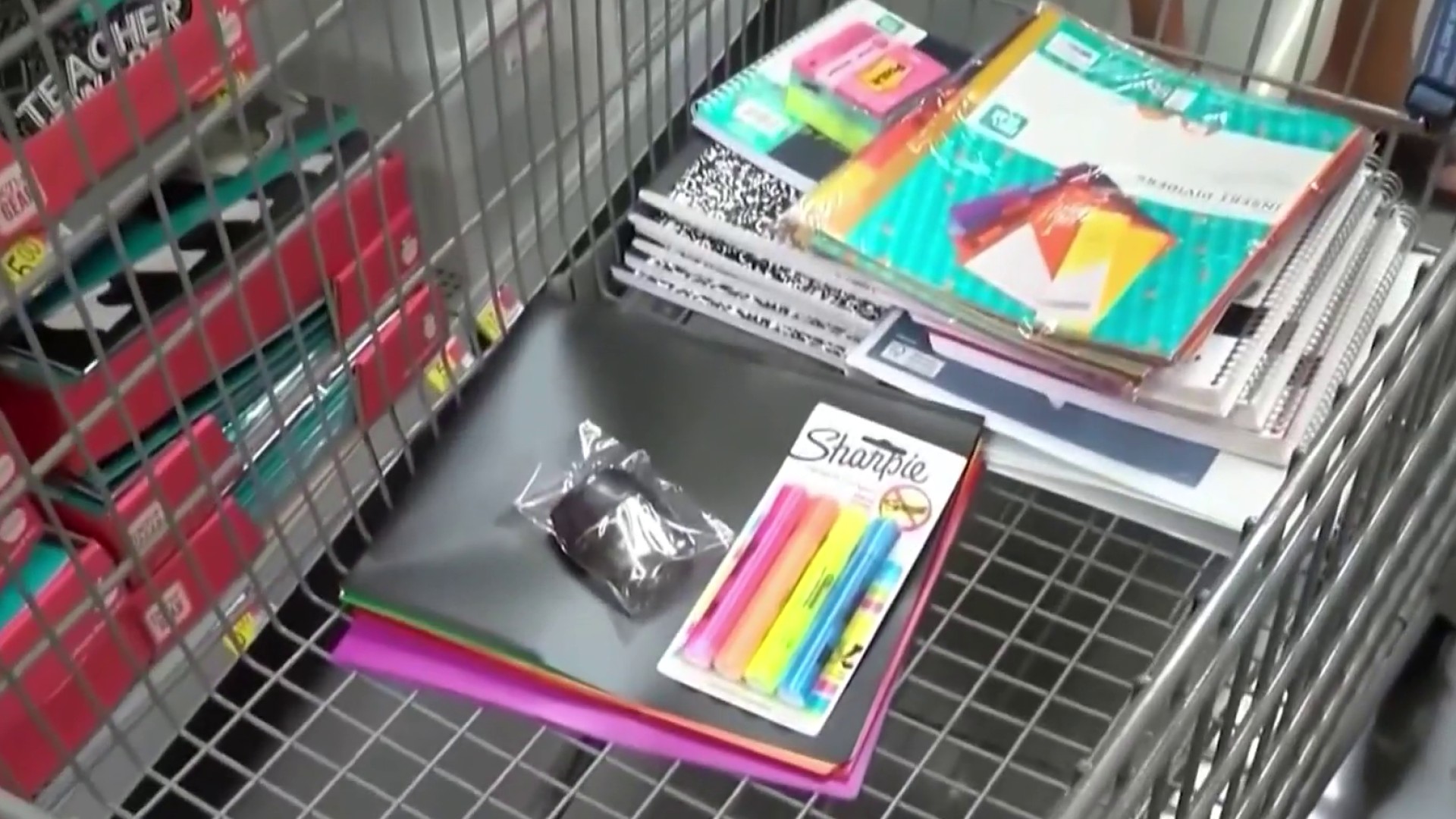The days leading up to the return to school can be overwhelming for parents and children, especially on an emotional level. But being informed about the challenges your child could face, and knowing how to deal with day-to-day obstacles, can make things easier.
We sat down with Edna Rodriguez, a clinical psychologist and an expert in adolescent mental health with Trinity Health of New England's Mercy Medical Center & Brightside for Families and Children, for advice as we head back to school.
Back to school — and back to the basics
Rodriguez believes the most important thing to do with your kids is to set expectations for school, not just in academics but other areas, including self-care.
Get New England news, weather forecasts and entertainment stories to your inbox. Sign up for NECN newsletters.
“Having conversations about self-care and how they're going to balance the academic load also with extracurricular activities and, you know, feeling well or feeling optimal. So having those conversations, it's very important,” she explained.
You should also make sure to establish a routine, especially if you’ve been lax over the summer. Rodriguez says a healthy sleep pattern is key, and that starts with a set bedtime. It may also include having kids turn off their tech for some time before they actually go to sleep.
“Can we do something that is soothing before that time? Turning off technology — the more we spend with a TV or with our phones, the more awakened our brain feels. So it does the opposite effect when we're trying to go to sleep,” she said.
But while parents may be able to set a routine for success at home, back to school means heading out of the house. This can be a challenge, especially for younger children who may not be used to the school routine. Rodriguez says parents should strive to create an environment where your kids feel safe and secure, so they can talk to you when things might not be going well.
“We are not tasked to solve everything in our kids’ lives, but we are tasked to be there and support them as much as we can,” she says. “So creating an environment for that, listening to them. Listening to them, asking questions, but also just being there.”
She adds that being there doesn’t always mean talking about a specific issue, It can be as simple as being present together, watching a movie, playing a board game — even video games: “Just being there for them and making them feel safe. So then when things happen in school, when things get tough academically, socially, internally, they can come to us, right? And they can say and express, 'Hey, things are not going well or they are not feeling great for me.'”
What if your kid is involved in a bullying situation?
Bullying can be one of a parent's worst fears. Rodriguez says there are usually signs to look out for: “Most likely kids are not going to come forward verbalizing some might and some may not. So pay attention to the things that kids are not saying, to their behavior. When kids become isolated, withdrawn, anxious, fearful, starting to avoid school like kids that used to like school and now all of a sudden are like, I don't want to go to school. I really don't want to be there. That's a sign.”
She notes that while sometimes parents can get frustrated with school personnel, it’s best to remember they are usually on your side, and connecting with them may help you get a handle on what’s happening. You can also be proactive in speaking with teachers or other administrators.
“If your child has a history of being a victim of bullying, and you know that that happened last year, starting with connecting with the school personnel, sending emails, logging on to any meetings possible that you can get to know the people that are going to be there watching your children or your child so you can get those connections,” Rodriguez says.
On that subject, Rodriguez says you don’t need to wait for something bad to happen to connect with your child’s teacher. Gone are the days of waiting for the parent-teacher conference — now technology has made it easy to build a relationship, which could help avoid potential issues.
“There are several apps that schools are using to communicate directly with teachers. There are sort of like social media for schools where you can keep active and knowing what's going on with your children and who are their teachers. Many times you can even see what's going on in school because they post pictures and so on,” she explains.
Kids and technology
On the topic of technology, while it may aid everything we do, Rodriguez says it’s still important to monitor your child’s use to be sure they’re using it appropriately and responsibility: “We are training our children to be adults. So ultimately we give them what they need to make decisions that are healthy and they're safe for themselves with our guide. So we use all of that, the parental controls and the structure really to guide them, to make those decisions on their own, hopefully.”
This can include limiting time or use of technology, and, especially for older kids who may desire more privacy, talking about the potential consequences of their behavior.
“It's all a balancing act. You have privacy with responsibilities, so when your responsibilities are not being kept, then your privacy needs to be monitored. Right. And I in and as long as we have agreements, the older children need to be brought to the table, there are certain things that are non-negotiable and that we don't want to be too democratic about. But there are things that we should negotiate about,” Rodriguez says.




